Tokyo City University: Statistics
Updated:
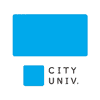

| Position | Category |
|---|---|
| #2469 of 14,131 | In the World |
| #779 of 5,830 | In Asia |
| #147 of 719 | In Japan |
| #33 of 84 | In Tokyo |
| #508 of 1,743 | For Architectural Engineering |
| Top50% | For 33 other topics |
Quick Review
- Enrollment
- 7,543
- Funding
- Private
- Highest Degree
- Bachelor
- Website
- www.tcu.ac.jp
- Languages
- Japanese
- Acceptance rate
- 37%*
* Tokyo City University is among the institutions that don't provide data on acceptance rates. This might happen because the university has programs where applicants only need to meet admission requirements to enroll and don't necessarily compete with others.
We estimate the above acceptance rate based on admission statistics of closely ranked nearby universities with similar research profiles that do publish such data.
Acceptance rate & Admissions
| Admissions Requirements | Graduation from high school or recognized equivalent or foreign equivalent, and entrance examination |
|---|---|
| Academic Calendar | April to March (April - October; October-March) |
| Enrollment | 7,543 |
Research profile
Tokyo City University has published 5,781 scientific papers with 43,087 citations received. The research profile covers a range of fields, including Engineering, Physics, Quantum and Particle physics, Chemistry, Environmental Science, Computer Science, Materials Science, Biology, Liberal Arts & Social Sciences, and Electrical Engineering.
Tokyo City University majors
by publication & citation count
Annual publication & citation counts
| Year | Publications | Citations |
|---|---|---|
| 1992 | 3 | 14 |
| 1993 | 2 | 17 |
| 1994 | 2 | 12 |
| 1995 | 1 | 10 |
| 1996 | 1 | 9 |
| 1997 | 1 | 23 |
| 1998 | 0 | 10 |
| 1999 | 0 | 16 |
| 2000 | 5 | 14 |
| 2001 | 5 | 19 |
| 2002 | 3 | 15 |
| 2003 | 9 | 18 |
| 2004 | 9 | 42 |
| 2005 | 18 | 30 |
| 2006 | 11 | 75 |
| 2007 | 35 | 80 |
| 2008 | 31 | 108 |
| 2009 | 159 | 153 |
| 2010 | 250 | 251 |
| 2011 | 300 | 558 |
| 2012 | 295 | 822 |
| 2013 | 282 | 1076 |
| 2014 | 274 | 1319 |
| 2015 | 329 | 1484 |
| 2016 | 330 | 1821 |
| 2017 | 378 | 2271 |
| 2018 | 382 | 2408 |
| 2019 | 441 | 3195 |
| 2020 | 421 | 3634 |
| 2021 | 449 | 5107 |
| 2022 | 440 | 5448 |
| 2023 | 432 | 6351 |
| 2024 | 389 | 6149 |
Tuition
The tuition table for Tokyo City University gives an overview of costs but prices are approximate and subject to change and don't include accommodation, textbooks, or living expenses. The costs of programs might differ significantly for local and international students. The only source of truth for current numbers is the university's official website.
| Program | Tuition (JPY) |
|---|---|
| Undergraduate | 820,000 |
| Graduate (Master's) | 820,000 |
| Graduate (Doctoral) | 820,000 |
Programs and Degrees
The table below displays academic fields with programs and courses that lead to Bachelor's, Master's, and Doctorate degrees offered by Tokyo City University.
Note that the table provides a general overview and might not cover all the specific majors available at the university. Always visit the university's website for the most up-to-date information on the programs offered.
| Programs | Bachelor | Master | Doctoral |
|---|---|---|---|
| Art & Design | No | No | No |
| Biology | Yes | Yes | Yes |
| Business | No | No | No |
| Chemistry | Yes | Yes | Yes |
| Computer Science | Yes | Yes | Yes |
| Economics | No | No | No |
| Engineering | Yes | Yes | Yes |
| Environmental Science | Yes | Yes | Yes |
| Liberal Arts & Social Sciences | No | No | No |
| Mathematics | Yes | Yes | Yes |
| Medicine | No | No | No |
| Physics | Yes | Yes | Yes |
| Psychology | No | No | No |
| Gakushi | Architecture, Civil Engineering, Communication Arts, Computer Science, Electrical and Electronic Engineering, Electronic Engineering, Energy Engineering, Environmental Studies, Information Sciences, Mechanical Engineering |
|---|---|
| Shushi | Architecture, Biomedical Engineering, Chemical Engineering, Civil Engineering, Electrical and Electronic Engineering, Energy Engineering, Environmental Studies, Industrial Management, Information Sciences, Mechanical Engineering, Nuclear Engineering, Polymer and Plastics Technology |
| Hakase | Architecture, Biomedical Engineering, Chemical Engineering, Civil Engineering, Electrical and Electronic Engineering, Energy Engineering, Environmental Studies, Industrial Management, Information Sciences, Mechanical Engineering, Nuclear Engineering, Polymer and Plastics Technology |
Notable alumni
-
Takahiro Hachigō
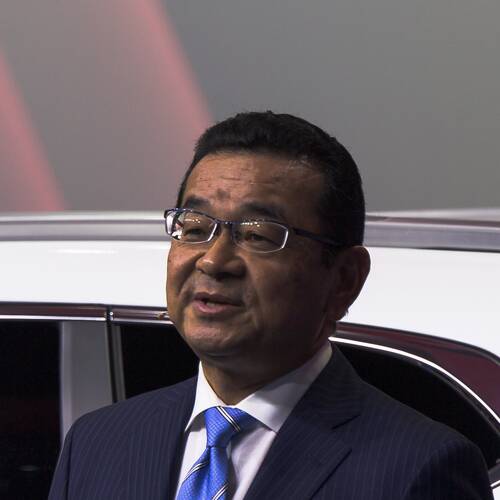
- Occupations
- businessperson
- Biography
-
Takahiro Hachigo is a Japanese engineer and businessman, who has been the chief executive officer of Honda Motor Co., Ltd., from June 2015 - April 2021 and was succeeded by Toshihiro Mibe. Prior to this, Hachigo was a managing officer at Honda, and started his career at Honda in 1982 as a chassis engineer. As CEO, Hachigo sought to streamline the manufacturing process by merging certain operations between motorcycles and cars, and while also lowering the costs of production by consolidating factories at home and abroad involving the budget. Hachigo is currently a member of the company board.
-
Akihiko Nakaya
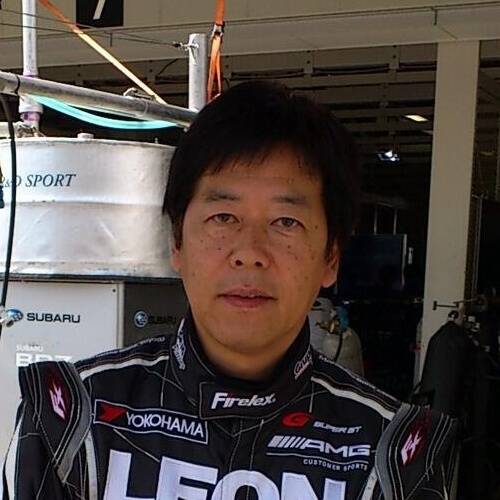
- Occupations
- racing driverracing automobile driverFormula One driver
- Biography
-
Akihiko Nakaya is a successful racing driver in the Japanese Touring Car Championship and F3000, as well as regular presenter on the Japanese motoring show Best Motoring. Nakaya offered a distinctively analytical approach to reviewing cars on the show, providing detailed analyses of various vehicle components and explaining certain driving styles that were best suited to their characteristics. He was a regular driver of Mitsubishi Lancer Evolutions during Best Motoring races involving the I, II, III, IV, V, VI (including the Tommi Makinen Edition), VII, and VIII of the car, often recording lap times significantly quicker than other drivers of the same vehicle.
-
Akihiro Ohata
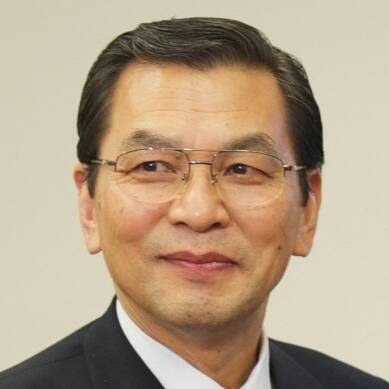
- Occupations
- politician
- Biography
-
Akihiro Ohata is a Japanese politician of the Democratic Party of Japan, a member of the House of Representatives in the Diet (national legislature). A native of Higashiibaraki District, Ibaraki, he attended the Musashi Institute of Technology as both undergraduate and graduate. He was elected to the assembly of Ibaraki Prefecture where he served for one term and then to the House of Representatives for the first time in 1990 as a member of the Japan Socialist Party.
-
Jun Itami
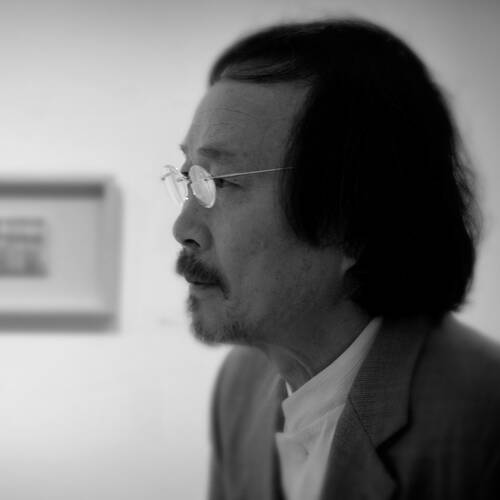
- Occupations
- architect
- Biography
-
Yoo Dong-ryong, known professionally as Jun Itami, is a Korean architect from Japan. He was born in Tokyo 1937 to Korean parents and gained his degree in architecture at Musashi Institute of Technology (now called Tokyo City University) in 1968. Itami Jun spent his childhood in Shizuoka, Japan and entered the world of architecture by traveling and encountering many other artists. With profound insight into objects, he learned and expressed architecture with the physical senses of touch and drawing as his medium. In the homogeneous industrial society, Itami Jun sought to practice contemporary architecture with an anti-modern bent, emphasizing purity of architecture and material, and pursuing heavy primitive architecture with a sense of rawness in the material. Itami Jun’s Jeju projects in his late years demonstrate the mature beauty of his architecture.
Tokyo City University faculties and divisions
| Faculty : Engineering | Architecture, Chemical Engineering, Electrical and Electronic Engineering, Energy Engineering, Mechanical Engineering, Safety Engineering, Town Planning |
|---|---|
| Faculty : Human Life Sciences | Child Care and Development |
| Faculty : Informatics | Information Sciences, Media Studies, Sociology |
| Faculty : Knowledge Engineering | Computer Science, Industrial Management, Information Sciences, Natural Sciences |
| Faculty : Urban Life Studies | Urban Studies |
| Graduate School : Engineering | Architecture, Biomedical Engineering, Chemical Engineering, Civil Engineering, Electrical and Electronic Engineering, Energy Engineering, Mechanical Engineering |
| Graduate School : Environmental and Information Studies | Urban Studies |
General information
| Alternative names | TCU 東京都市大学 |
|---|---|
| Founded | 1929 |
| Accreditation | Japan University Accreditation Association (JUAA) |
Location and contacts
| Address | 1-28-1 Tamazutsumi Setagaya-ku, Tokyo, 158-8557 Japan |
|---|---|
| City population | 14,265,000 |
